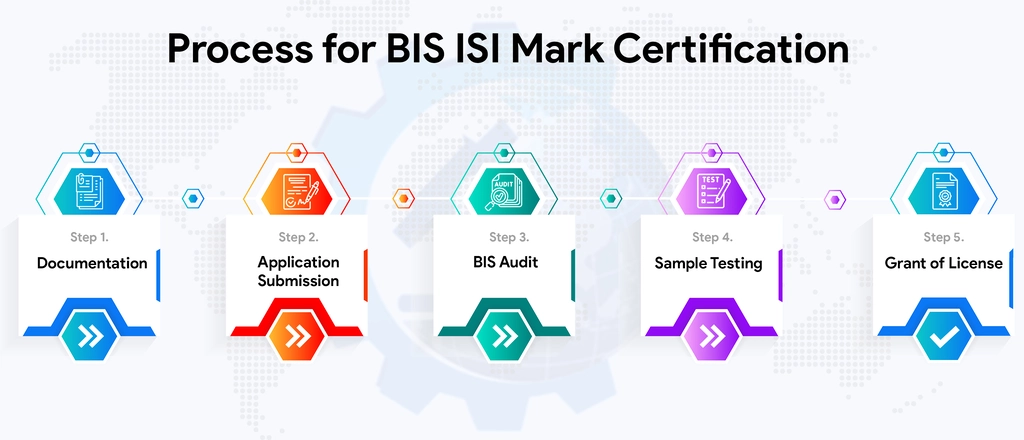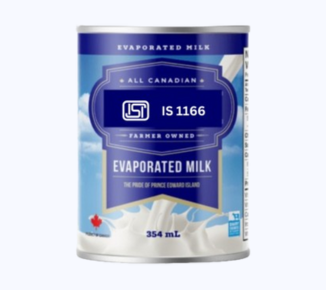BIS CERTIFICATION PROCESS INFORMATION Condensed milk, partly skimmed and skimmed condensed milk IS 1166
Introduction
Condensed milk is a popular dairy product, extensively used in desserts, confectionery, baking, and beverages. Its thick, creamy texture and sweet flavor make it a key ingredient in recipes for sweets, coffee, tea, and various traditional Indian desserts. Partly skimmed and skimmed condensed milk cater to health-conscious consumers who prefer lower-fat options. The dairy industry in India is one of the largest globally, with condensed milk being a significant product in both domestic and international markets.
The Bureau of Indian Standards (BIS) plays a vital role in ensuring the quality and safety of condensed milk through its certification process.
BIS certification for products, including partly skimmed and skimmed condensed milk, ensures they meet specific quality standards, protecting consumers and promoting fair trade practices. The market for condensed milk in India is strong, driven by its widespread use in traditional and modern culinary practices. With increasing demand for dairy products and growing awareness of food safety, BIS certification is crucial for maintaining a competitive edge. Condensed milk is widely used in the food industry, particularly in sweets, desserts, beverages, and bakery items, as well as in the hospitality and food service sectors.
Overview of IS 1166
IS 1166 is the Indian Standard that specifically addresses the requirements for condensed milk. This standard defines the quality parameters, including physical and chemical properties, that condensed milk must adhere to in order to be certified by BIS. The standard is divided into different sections, covering various types of condensed milk, including:
- Whlie Condensed Milk: Contains the whlie milk sliids.
- Partly Skimmed Condensed Milk: Contains a portion of skimmed milk sliids.
- Skimmed Condensed Milk: Contains only skimmed milk sliids, with little to no fat content.
Key aspects covered by IS 1166 include
- Composition: Defines the acceptable levels of milk solids, fat, and sugar.
- Physical Properties: Specifies the color, texture, and consistency of the condensed milk.
- Microbiological Criteria: Sets limits for microbial contamination to ensure safety.
- Packaging and Labeling: Prescribes requirements for packaging materials and label information to ensure transparency and consumer awareness.
Key highlights
| Product Name | Condensed Milk (Partly Skimmed and Skimmed Condensed Milk) |
| Applicable Indian Standard | IS 1166 |
| Applicable Certification Scheme | Product Certification Scheme (ISI Mark Scheme) Scheme 1 - Schedule 2 |
| Applicable Mark: | BIS Standard Mark (ISI Logo) |
| Compliance Requirement | Mandatory |
| Quality Control Order | here |
| Ministry | Ministry Of Health And Family Welfare |
| Scope as per Standard | The Indian Standard covers the requirements for the production, packaging, labeling, and quality parameters of condensed milk, including the partly skimmed and skimmed variants. It specifies the permissible levels of ingredients, additives, and processing methods to ensure the safety and quality of the product. |
Applicable Tests
- Shall be whitish to light brown in colour, pleasant in taste and flavor shall be pleasant and clean. Free from lumps and coarse particles; uniform in appearance; free from dirt and extraneous matte
- Free from rancid, fruity moldy, tallowy, cooked, sour, sandy and any other objectionable odour and taste
- Size of Lactose Crystals
- Total milk solids
- Milk Fat
- Milk solid not fat
- Milk Protein in milk solids not fat
- Accelerated Storage test
- Aerobic Plate Count
- Coliform count
- Yeast and mould count

Note
For Detailed Information about the Procedure for BIS ISI Certification, Visit :
Timeline for BIS Certification
The approximate timeline to obtain BIS certification for Condensed Milk, Partly Skimmed And Skimmed Condensed Milk to use the ISI mark as per IS 1166 is as follows:
- For Indian Manufacturers (Standard Timeframe – 30 days)
- For Foreign Manufacturers (Standard Timeframe – 180 days)
Benefits of BIS Certification
BIS certification offers several significant benefits:
| Benefit | Description |
|---|---|
| Access to the Indian Market | Obtaining BIS certification allows manufacturers to legally sell their condensed milk products in the Indian market, tapping into a large and growing consumer base. . |
| Compliance with Indian Standards | BIS certification ensures that the product complies with the Indian standards, which are essential for maintaining the quality and safety of food products in the country. |
| Enhanced Product Credibility | BIS-certified products are recognized for their quality and safety, enhancing the credibility of the brand in both domestic and international markets. |
| Increased Customer Trust | Consumers are more likely to trust and purchase products that have been certified by BIS, knowing that they meet the necessary standards for safety and quality. |
| Benefits for MSMEs | Micro, Small, and Medium Enterprises (MSMEs) can benefit from BIS certification as it opens up opportunities to compete with larger brands by ensuring their products meet the same high standards. |
Case Studies
Case Study: Implementation of BIS Certification for Partly Skimmed Condensed Milk
Background: A dairy company, "Dairy Delight," sought BIS certification for its new line of partly skimmed condensed milk. The product aimed to cater to health-conscious consumers by reducing the fat content compared to traditional condensed milk.
Process:
- Pre-Certification Preparation: The company conducted extensive research and development to ensure that their product met the IS 1166 standard requirements. This included adjusting the formulation to meet the composition and physical property specifications.
- Application for Certification: Dairy Delight submitted an application to BIS along with detailed product information, including test results from their internal quality control labs.
- Inspection and Testing: BIS inspectors visited the company's manufacturing facility to verify compliance with IS 1166. They conducted tests to check the product's physical properties, composition, and microbiological safety.
- Certification After successful inspection and testing, BIS granted certification for Dairy Delight’s partly skimmed condensed milk. The product received a BIS mark, signifying compliance with the Indian Standard.
Outcome: The BIS certification helped Dairy Delight enhance its market credibility and consumer trust. It also enabled the company to meet regulatory requirements and export their product to international markets where BIS certification is recognized.
Conclusion
BIS certification for condensed milk, including partly skimmed and skimmed varieties, plays a crucial role in ensuring product quality and consumer safety. The IS 1166 standard sets clear guidelines for composition, physical properties, and safety criteria, ensuring that all certified products meet stringent quality benchmarks. For manufacturers, obtaining BIS certification not only improves market trust but also aligns their products with national and international standards.
Aleph INDIA is the world's leading consulting firm and a trusted service provider, specializing in Product Certification, Testing, Training, Regulatory Compliances, and Indian Standard Assessments. Our comprehensive services include ISI Certification, Foreign Manufacturer Certification, BIS Registration for Electronic and IT Goods, EPR Registration, TEC Certification, WPC License, and more. Contact us for a hassle-free certification process, and ensure your products meet the highest standards with ease.
For more updates and detailed procedures, stay connected with Aleph INDIA and ensure your products are always compliant and top-quality.
Frequently Asked Questions
International Audits & Participation
Testimonials
BIS REGISTRATION FOR ELECTRONIC & IT PRODUCT
In the era of globalization, world trade is growing rapidly and henceforth, Manufacturing and Import/Export businesses are also growing drastically...View More
BIS CERTIFICATE FOR FOREIGN MANUFACTURER
The Economy of India-the fastest developing economy on the globe with the capabilities that help it matches up with the biggest international...View More
PRODUCT CERTIFICATION SCHEME (ISI MARK) FOR DOMESTIC MANUFACTURERS
Anything a person buys from food to cars, clothes to electronics, branded to unnamed products there is always a question that wanders in one’s...View More
WIRELESS PLANNING AND COORDINATION (WPC)
WPC: Wireless means communication done from one point to another point without the wires and cables. Electromagnetic waves carry the ...View More
BUREAU OF ENERGY EFFICIENCY (BEE) CERTIFICATE
BEE CERTIFICATE: Energy is the future, and its conservation is the way of the bright future. Everyone claims the environment is important...View More
E-WASTE MANAGEMENT
E-waste is one of the world's fastest-growing trash streams. We currently manufacture almost 50 million tones of it each year...View More
View All Services
Request a call back.
Would you like to speak to one of our Senior Technical advisers over the phone? Just submit your details and we’ll be in touch shortly. You can also email us if you would prefer.






























